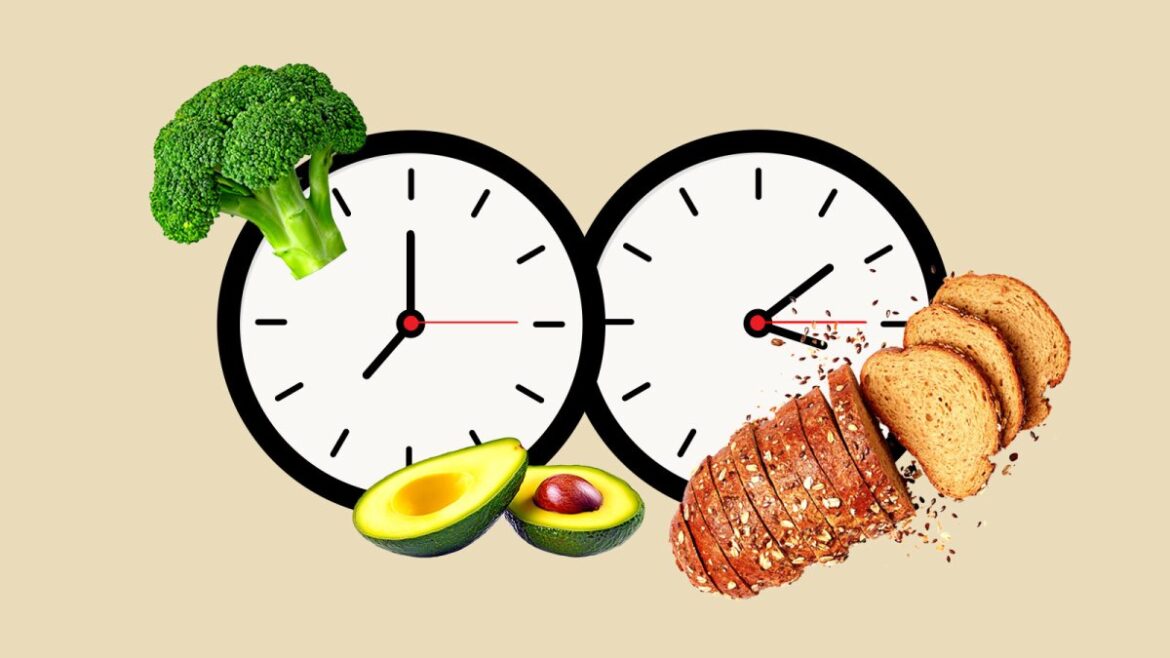Intermittent fasting is more effective than calorie restriction for weight loss, new research has suggested.
People on a “4:3” intermittent fasting regime, where calorie intake is restricted for three days in a week, lost slightly more weight over a 12-month period than those on a daily calorie restriction diet.
Intermittent fasting diets have been popular with celebrities such as Jennifer Aniston, Kourtney Kardashian and Halle Berry, and many people prefer them due to the days where no restriction takes place.
• How extreme is your daily routine? Ask the new health-obsessed
In the clinical trial conducted by scientists at the University of Colorado School of Medicine, 165 overweight adults were randomly assigned to a 4:3 intermittent fasting diet or a calorie-restrictive diet.
In the research, published in the Annals of Internal Medicine, participants who undertook intermittent fasting lost 7.6 per cent of their body weight, while those who restricted calorie intake daily lost 5 per cent of their body weight by the end of the 12 months.
As well as participants losing more on average, more participants lost at least 5 per cent of their body weight in the intermittent fasting condition, with 58 per cent achieving this, compared with 47 per cent in the calorie-restriction group.
Victoria Catenacci, the lead author of the study, said: “Participants in the fasting group also achieved more favourable cardio-metabolic outcomes including systolic blood pressure, total and low-density lipoprotein cholesterol levels, and fasting glucose level.”

Conventional calorie-restriction diets may be harder to sustain than intermittent fasting
WITTHAYA PRASONGSIN/GETTY IMAGES
The research team said their findings suggested that because fasting does not require participants to focus on counting calories and restricting food intake every single day, it may result in “greater adherence” and should be considered within the range of evidence-based dietary weight loss approaches.
Those in the fasting condition had to restrict their calories by an 80 per cent energy restriction on their fasting days, meaning they would eat approximately 500 calories per day if their baseline was 2,500 calories daily.
• The dangers of fitness trackers — and when to stop using yours
Those in the calorie-restriction condition reduced their intake by 34.3 per cent, roughly equating to 1,640 calories for a person whose usual intake should be 2,500 calories.
The participants were also given a free gym membership and were advised to exercise for five hours each week. They were also given group-based behavioural support and received instructions on calorie counting and “macronutrient” guidelines for a healthy diet.
• Overindulged? Why it’s harder to get back on track after a blowout
Adam Collins, associate professor of nutrition at the University of Surrey, said: “The study’s main finding was that a 4:3 approach gives more weight loss than conventional calorie restriction, despite participants [being] prescribed the same overall calories. Yet, this is not a magic property of the 4:3 approach per se, but because they achieved a bigger calorie deficit.”
He added: “Adherence to any diet over 6-12 months is challenging at the best of times, but this may explain why the 4:3 group were closer to the calorie deficit target overall. Nevertheless, it does support the notion that, in the real world, intermittent energy restriction protocols outperform conventional everyday calorie restriction both in terms of compliance and results.”

